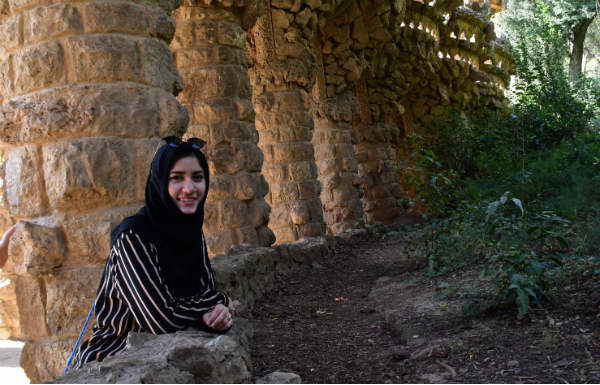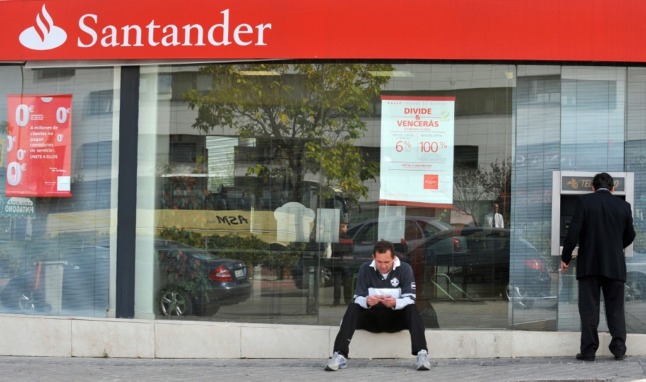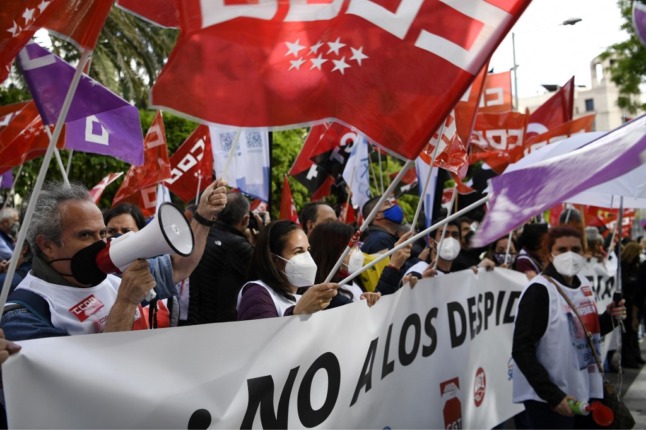Before moving to Germany, the one question everyone would ask me was if or not I had mastered the language.
People who hadn’t even ever stepped a foot in Germany made it their mission to warn me about the impending language barrier I would face.
Despite having attended a basic German course back home I remember feeling extremely nervous while I muttered a timid ‘Danke’ to the air hostesses as we exited the plane. Not knowing a country’s language is daunting and isolating.
Two of the emotions I did not want to feel as I already somehow missed home. It has been a year now since I moved to Munich and I can safely say that I have never felt as if I could not survive without German.
Maintaining a social life and finding work is a completely different discussion but otherwise you can get away with English. I have seen that in most parts of Europe but Spain.
Since the past year I have spent two months in Spain, loving each and every moment of it despite it being the one place in Europe I felt I could not get away with English.
A month or so ago I was travelling by train in Valencia when the ticket checker came up to me and starting talking in Spanish.
Saying that my Spanish is very basic would be an understatement; it’s basically non-existent. As he kept speaking in Spanish and I in English,
I kept looking around if anyone of the passengers could perhaps help. Most of the people surrounding me were my age; some of them even looked like University students yet none of them knew enough English to convey the message to me.
When we both realized this, he started to communicate through actions and finally got his message across. Days after this incident I still could not stop thinking about it. Not once had the guy lost his cool, not once did he show any annoyance regarding me not speaking the language.
In Spain, I saw that everywhere. In spite of it being the place where English was scarcely spoken or understood by the locals; it is one of the most hospitable nations I have ever visited.
During our trip to Spain this year; we stood outside the best buñuelos place, Fabian, when we met with an Arab-French woman who had only recently moved to Spain. While talking about our mutual love for Spain and its people, she perfectly summed up the words to describe them. She said, ‘It’s simple, in a world full of racism and prejudice; Spanish people still remain humane.’
I cannot count the times I had a full conversation with random people in Spain as they spoke Spanish and I English; despite language being an obvious barrier, it never felt like that.
No matter where we were in Spain; no one ever seemed to be annoyed about our non-existant Spanish. Among the many people that made me fall even more in love with Spain was this gentleman from a small food stall.
For anyone who doesn’t know, Spanish people love their cerdo. So as a Muslim, the food scene can sometimes be limited; especially when you’re craving a hotdog. For that very reason I was in a state of disbelief when this man told me that the hotdog I was ogling at had ‘no cerdo’.
I was overjoyed, surprised and still a little vary. Looking at our expressions he reassured us once again by mentioning that the meat was halal. While we were trying to explain to him in our broken Spanish that we believed him, he suddenly said something and disappeared into the kitchen.
Moments later he came out with a bag of frozen hotdogs and excitedly pointed to the ‘halal’ logo on the pack. In spite of there being a que behind us, he went above and beyond to make his customers feel comfortable, all that with a smile on his face.
Coming from Germany where most people dislike small talk, I loved and cherished the talkative and friendly nature of the Spanish. A few days before heading back I visited a local salon, ‘Belleza Valentina’ and met two of the most loving souls.
Yolanda who only knew a few words in English did not let that come between her hospitable nature. While she took a break from threading one of my eyebrows, she asked to have a look at the google translate app I had previously used.
For the next few minutes we had a proper conversation through the app; she asked me where I came from, my travels in Spain and what I thought of the country. She went completely out of her way to have a conversation with me and that mere fact brightened my day. For me, she is a true representation of the people of Spain.
As a foreigner you should be aware of the scarcity of English but I can assure you that the scarcity never becomes a barrier. Consequently, they might even start speaking very loudly in the hopes that volume may somehow magically allow you to understand the language. Nevertheless, the hospitality and warmth of the people is far too powerful to be overcome by a language gap.
Sana Ahmad is from Pakistan and is currently living in Munich, Germany with her husband but travelled extensively in Spain, visiting Valencia, Barcelona, Madrid, Altea, Cordoba and Granada. Follow her travels on Twitter and Instagram





 Please whitelist us to continue reading.
Please whitelist us to continue reading.
Member comments